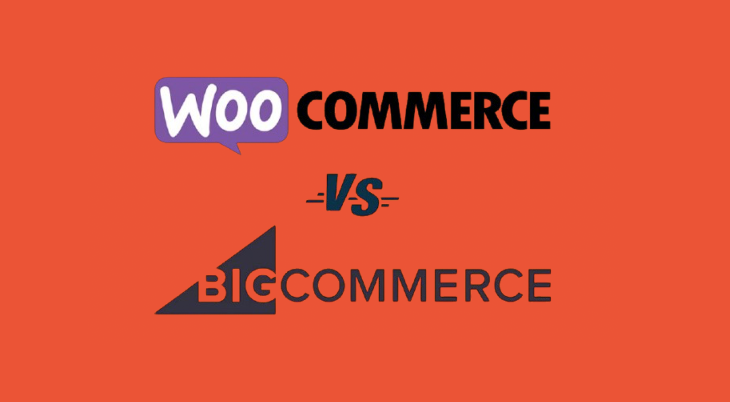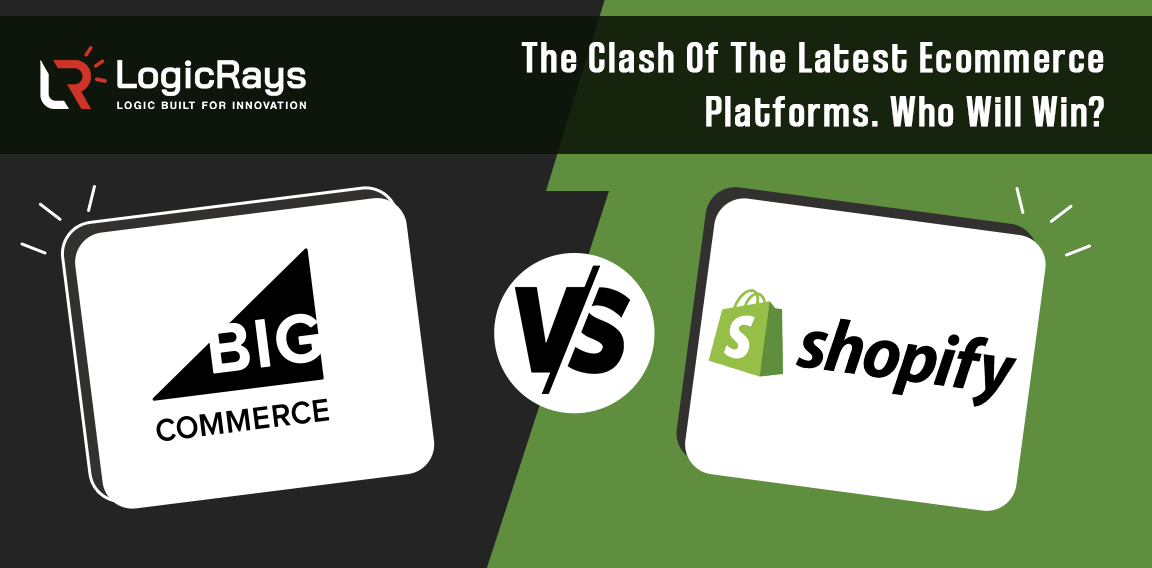Are you having difficulty in deciding the right e-commerce platform for your online store? Needless to say, choosing the right one is crucial for your online store’s success. In this detailed comparison of WooCommerce vs BigCommerce, you will get to know which one can truly elevate your online business. Understanding the strengths and weaknesses of both platforms will guide you to make an informed choice. Let’s unravel the secrets of WooCommerce vs BigCommerce!
Key Considerations in e-Commerce Platform Selection
When creating an e-commerce site, consider several key factors.
Firstly, assess the ease of use. A user-friendly interface simplifies management.
Secondly, consider customization options. They allow for unique branding and customer experience.
Thirdly, evaluate the scalability. Your platform should grow with your business. Also, examine the available integrations. They enhance functionality and efficiency. Security features are vital to protect customer data.
Lastly, consider the cost. It should align with your budget and business goals.
In the WooCommerce vs BigCommerce debate, each platform offers distinct features in these areas, crucial for your site’s success.
WooCommerce vs BigCommerce: A Comprehensive Overview

In the e-commerce platform market, WooCommerce and BigCommerce stand out as major players. Statistically, over 44.04% of all online stores use WooCommerce, highlighting its popularity. This section compares WooCommerce and BigCommerce, providing a clear picture for businesses deciding between these two powerful platforms. But before diving into that discussion, let’s have a brief overview of both platforms.
Exploring WooCommerce: Features, Pros, and Cons

Exploring WooCommerce reveals its robust features, making it a strong contender in the WooCommerce b2b market. As an open-source plugin for WordPress, it offers unparalleled customization. Users enjoy a wide range of themes and plugins, tailoring their store to specific needs.
Pros include its flexibility, a vast community for support, and seamless integration with WordPress.
However, WooCommerce demands a good grasp of WordPress, potentially higher costs due to premium plugins, and significant time investment for customization.
These aspects make it a versatile yet demanding platform, ideal for businesses seeking a personalized e-commerce solution in the B2B sector.
Unveiling BigCommerce: Capabilities, Advantages, and Limitations

Known for its comprehensive out-of-the-box features, BigCommerce eliminates the need for numerous plugins.
Its main advantages are robust built-in functionalities, scalability, and ease of use, making it ideal for businesses that prioritize efficiency and growth. Additionally, it offers strong SEO tools and diverse payment gateway integrations.
However, BigCommerce has limitations such as fewer free themes, a learning curve for beginners, and plan-based sales thresholds.
These factors position BigCommerce as a powerful yet approachable solution for businesses seeking a streamlined and feature-rich e-commerce platform in the B2B realm.
WooCommerce vs BigCommerce: Head-to-Head Comparison
In this head-to-head comparison, we’ll dissect the key differences between WooCommerce and BigCommerce, helping you make an informed decision for your e-commerce business’s unique needs.
| Feature | WooCommerce | BigCommerce |
|---|---|---|
| 1. Platform Type | Open-source WordPress plugin | Hosted e-commerce platform |
| 2. Cost | Free to install, costs vary with added plugins & hosting | Offers free trial, then basic to advanced paid plans |
| 3. Features | Extensive with plugins, adaptable to various needs | Comprehensive built-in features, less reliant on plugins |
| 4. Ease of Use | Requires WordPress familiarity | User-friendly, easier for beginners |
| 5. Customization | Highly customizable with themes and plugins | Customizable but within the platform’s constraints |
| 6. Themes & Design | Wide range of themes, highly customizable | Limited free themes, premium themes available |
| 7. Apps & Plugins | Extensive plugin library | Built-in features reduce need for plugins |
| 8. Payment Gateway | Supports numerous gateways, more flexibility | Offers a variety of gateways without extra fees |
| 9. Dependency | Dependent on WordPress | Standalone platform |
| 10. Security | Requires manual management of security | Provides robust, built-in security features |
| 11. Support | Community-driven support | 24/7 professional support |
In this head-to-head comparison, WooCommerce shines for customizability and WordPress integration, while BigCommerce stands out for built-in features and scalability. Your choice depends on your specific e-commerce needs and goals.
Some Popular Brand That Uses:
WooCommerce
- Xerox: Known for its innovative printing and document solutions, Xerox utilizes WooCommerce to power its e-commerce platform.
- Weber: The renowned grill and outdoor cooking company, Weber, employs WooCommerce to manage its online sales.
- Elegant Themes: This company, famous for its WordPress themes and plugins, including Divi, uses WooCommerce for its e-commerce operations.
- WebMD: The popular health information provider, WebMD, leverages WooCommerce for its online store.
BigCommerce
- Skullcandy: The popular audio brand, Skullcandy, uses BigCommerce to handle its extensive range of products and e-commerce needs.
- GE Appliances: General Electric’s appliance division utilizes BigCommerce for its online sales and customer interactions.
- Sony: The electronics giant, Sony, employs BigCommerce to support its diverse product lineup and e-commerce requirements.
- Gillette: Known for its shaving and personal care products, Gillette uses BigCommerce to manage its e-commerce platform.
- Casio: The renowned electronics manufacturer, Casio, relies on BigCommerce for its online sales and product management.
Final thoughts,
The choice between BigCommerce or WooCommerce hinges on your specific business requirements, technical skills, and growth plans. Each platform has its strengths, catering to different types of e-commerce ventures. Now, armed with this comprehensive comparison, you’re ready to make an informed decision. Are you ready to take the leap into e-commerce success? Avail our ecommerce development services and create a scalable online store today!
FAQs
Which platform is better for large e-commerce websites?
BigCommerce is often the preferred choice for large e-commerce websites. Its ability to handle high volumes, advanced SEO capabilities, and extensive built-in features without needing numerous plugins make it ideal for scaling businesses.
Which One Is Better for Small e-Commerce?
WooCommerce is better for small e-commerce businesses due to its flexibility, lower cost of entry, and the vast customizability it offers. Being a WordPress plugin, it’s particularly beneficial for those already familiar with WordPress.
What are other e-commerce solutions?
Other popular e-commerce solutions include:
- Shopify: Known for its user-friendliness and sleek designs, Shopify makes it easy to set up and manage an online store without requiring extensive technical knowledge.
Hire a Shopify developer to take your store to the next level with custom features and optimization. - Magento: Favored for its robust features and scalability, Magento is ideal for businesses looking for a highly customizable platform with enterprise-level capabilities.
Hire a Magento developer to create a tailor-made e-commerce solution with advanced features and full scalability. - Squarespace: Perfect for those seeking integrated website and e-commerce functionalities with beautiful design templates, Squarespace offers an all-in-one solution for creatives and small businesses.
Which One is Better for Payment Gateway?
Both WooCommerce and BigCommerce efficiently support multiple payment gateways. WooCommerce offers more flexibility and customization in payment options, making it a slightly better choice for businesses with specific payment processing needs.
In this head-to-head comparison, WooCommerce shines for customizability and WordPress integration, while BigCommerce stands out for built-in features and scalability. Your choice depends on your specific e-commerce needs and goals.
Some Popular Brand That Uses:
Popular Brands Using WooCommerce
- Xerox: Known for its innovative printing and document solutions, Xerox utilizes WooCommerce to power its e-commerce platform.
- Weber: The renowned grill and outdoor cooking company, Weber, employs WooCommerce to manage its online sales.
- Elegant Themes: This company, famous for its WordPress themes and plugins, including Divi, uses WooCommerce for its e-commerce operations.
- WebMD: The popular health information provider, WebMD, leverages WooCommerce for its online store.
Popular Brands Using BigCommerce
- Skullcandy: The popular audio brand, Skullcandy, uses BigCommerce to handle its extensive range of products and e-commerce needs.
- GE Appliances: General Electric’s appliance division utilizes BigCommerce for its online sales and customer interactions.
- Sony: The electronics giant, Sony, employs BigCommerce to support its diverse product lineup and e-commerce requirements.
- Gillette: Known for its shaving and personal care products, Gillette uses BigCommerce to manage its e-commerce platform.
- Casio: The renowned electronics manufacturer, Casio, relies on BigCommerce for its online sales and product management.
Final thoughts,
The choice between BigCommerce or WooCommerce hinges on your specific business requirements, technical skills, and growth plans. Each platform has its strengths, catering to different types of e-commerce ventures. Now, armed with this comprehensive comparison, you’re ready to make an informed decision. Are you ready to take the leap into e-commerce success? Avail our ecommerce development services and create a scalable online store today!
FAQs
Which platform is better for large e-commerce websites?
BigCommerce is often the preferred choice for large e-commerce websites. Its ability to handle high volumes, advanced SEO capabilities, and extensive built-in features without needing numerous plugins make it ideal for scaling businesses.
Which One Is Better for Small e-Commerce?
WooCommerce is better for small e-commerce businesses due to its flexibility, lower cost of entry, and the vast customizability it offers. Being a WordPress plugin, it’s particularly beneficial for those already familiar with WordPress.
What are other e-commerce solutions?
Other popular e-commerce solutions include:
- Shopify: Known for its user-friendliness and sleek designs, Shopify makes it easy to set up and manage an online store without requiring extensive technical knowledge.
Hire a Shopify developer to take your store to the next level with custom features and optimization. - Magento: Favored for its robust features and scalability, Magento is ideal for businesses looking for a highly customizable platform with enterprise-level capabilities.
Hire a Magento developer to create a tailor-made e-commerce solution with advanced features and full scalability. - Squarespace1. Platform Type– WooCommerce: Open-source WordPress plugin.- BigCommerce: Hosted e-commerce platform.2. Cost– WooCommerce: Free to install, costs vary with added plugins and hosting.- BigCommerce: Offers free trial, then basic to advanced paid plans.3. Features– WooCommerce: Extensive with plugins, adaptable to various needs.- BigCommerce: Comprehensive built-in features, less reliant on plugins.4. Ease of Use
– WooCommerce: Requires WordPress familiarity.
– BigCommerce: User-friendly, easier for beginners.
5. Customization
– WooCommerce: Highly customizable with themes and plugins.
– BigCommerce: Customizable but within the platform’s constraints.
6. Themes & Design
– WooCommerce: Wide range of themes, highly customizable.
– BigCommerce: Limited free themes, premium themes available.
7. Apps & Plugins
– WooCommerce: Extensive plugin library.
– BigCommerce: Built-in features reduce need for plugins.
8. Payment Gateway
– WooCommerce: Supports numerous gateways, more flexibility.
– BigCommerce: Offers a variety of gateways without extra fees.
9. Dependency
– WooCommerce: Dependent on WordPress.
– BigCommerce: Standalone platform.
10. Security
– WooCommerce: Requires manual management of security.
– BigCommerce: Provides robust, built-in security features.
11. Support
– WooCommerce: Community-driven support.
– BigCommerce: 24/7 professional support.
: Perfect for those seeking integrated website and e-commerce functionalities with beautiful design templates, Squarespace offers an all-in-one solution for creatives and small businesses.
Which One is Better for Payment Gateway?
Both WooCommerce and BigCommerce efficiently support multiple payment gateways. WooCommerce offers more flexibility and customization in payment options, making it a slightly better choice for businesses with specific payment processing needs.
